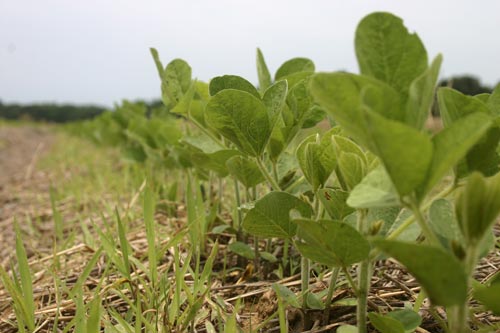September 9, 2010

Steve Powles from the University of Western Australia is quoted a lot about weed resistance. Australia spent years in seeding ryegrass for their sheep. When much of that grazing land was later converted to wheat production they naturally had a ryegrass problem in the wheat.
When, ryegrass resistance to Hoelon was discovered, their ryegrass population was already resistant to the ALS inhibitors like Glean and no Glean had ever been used on it.
Steve made a comment to me years ago that I have not forgotten: “herbicide-resistant ryegrass changed me from a herbicide scientist to a weed scientist.”
If you think about it, my generation has been herbicide scientists. Dealers have been herbicide dealers, consultants have been herbicide consultants and farmers have been herbicide farmers. If you advance a generation or two, we have those same groups that have not known anything for weed control in corn, cotton and soybeans but glyphosate.
In the ryegrass situation in Australia, they woke up almost overnight with no herbicide options for controlling the driver weed in the major crop in Western Australia. The good news for us is they are still successfully growing wheat in Western Australia.
To do that, however, they have had to do some things they would not have done otherwise. They have continued to use herbicides, but they have also had to implement other methods of weed control to stay in business.
To give you the short version, much of their effort has been concentrated on weed seed management. We must follow suit. The objective in weed management used to be to use enough herbicide to keep the weed population below threshold levels — that is below the level where the weed population would reduce yields more than the cost of a treatment. That day is over, and the University of Arkansas scientists are all over the concept of soil seed bank management.
The rapid onset of herbicide resistance along with the fact we are running out of technology means we must work on the seed side of the weed.
In the past, scientists laboring along on weed biology and other more basic areas of research have watched us herbicide guys get most of the research money. Well, some of those scientists may all of a sudden become your new best friends.
In Australia I was always intrigued by the farmers pulling “chaff carts” behind their combines. These carts catch the chaff which contains a lot of the weed seeds. They take it outside the field to burn it or otherwise dispose of it. I often thought, “Boy, I can just see our farmers in Arkansas pulling chaff carts!”
Before you start firing emails, I am in no way saying chaff carts will be our answer — I sure hope not. They have also done some things with a simple addition to the combine that windrows the chaff to allow them to burn the windrows and thus a lot of the weed seed.
They are doing other things — some of it with herbicides — to prevent weed seed production in the crop. I do not know that anything in Australia will be applicable to our situation in rice, soybeans and cotton in Arkansas. I do believe, however, that we must think outside the box on weed seed prevention and soil seed bank management.
Dr. Powles recently asked a group about some of the non-traditional things Australian farmers are doing: “Do you think our farmers enjoy this or wanted to do it?” No, they are doing it to survive and we will do whatever we have to do to survive as well.
I sincerely hope chaff carts are not part of the equation! However, I want to get you thinking outside the box because even with excellent technology like LibertyLink coming along, I do not believe we will solve our resistance problem by just chasing it with the next new herbicide technology.
About the Author(s)
You May Also Like




